RCAC hosts successful 2025 Research Computing CI Symposium in Indianapolis
Earlier this month, the Rosen Center for Advanced Computing (RCAC) hosted the 2025 Research Computing Cyberinfrastructure (CI) Symposium. This event marked the fourth CI Symposium put on by RCAC, and the first to take advantage of the beautiful space at High Alpha in Indianapolis. The theme for the day was “The Greatest Spectacle in Simulation.” Presentations were delivered by researchers, staff, and faculty from both the West Lafayette and Purdue Indianapolis campuses and covered a range of topics related to high-performance computing (HPC).
The 2025 CI Symposium 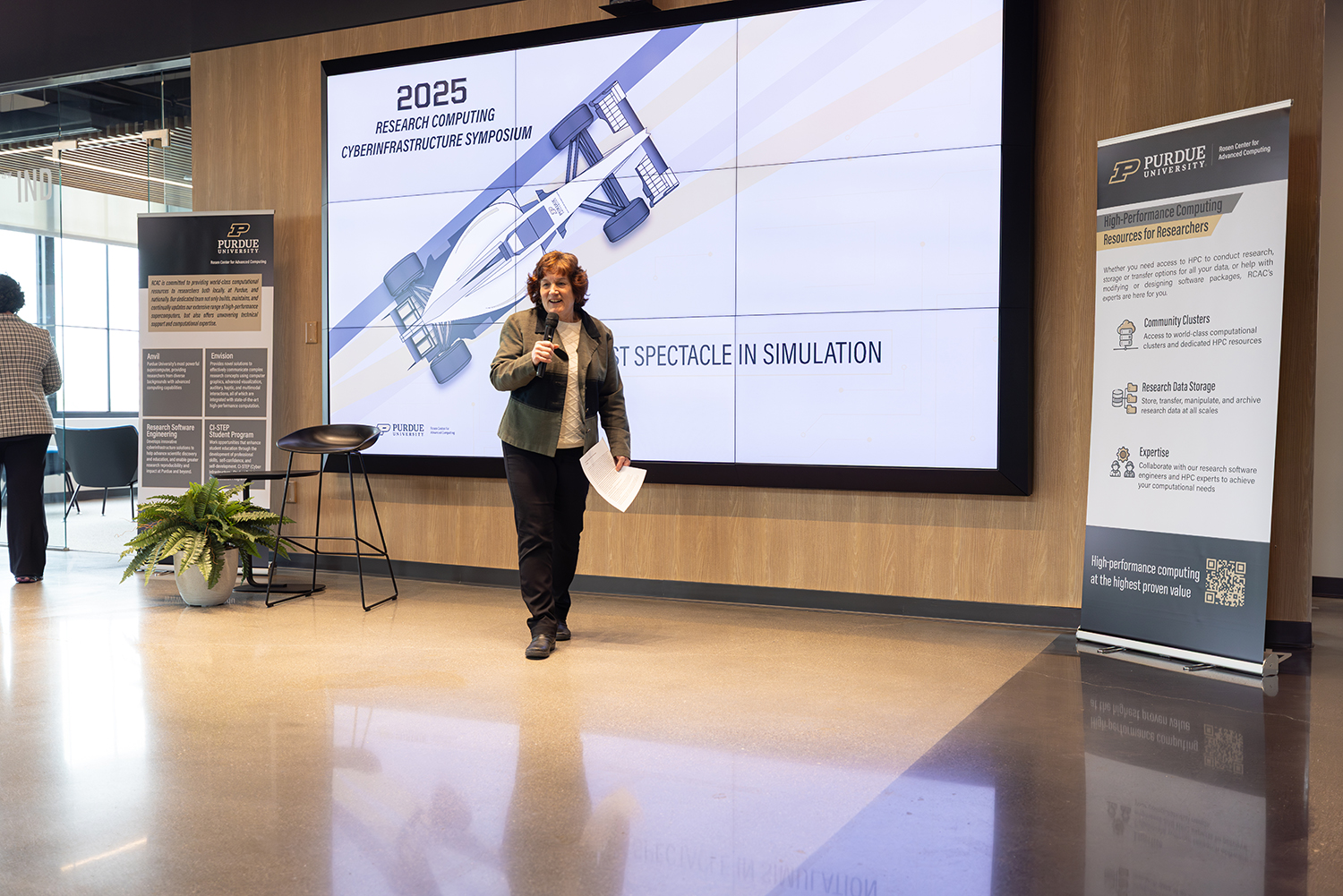 began with opening remarks from Karen Plaut, executive vice president for research at Purdue University, and Dave Umulis, senior vice provost and chief academic officer for Purdue University in Indianapolis. Plaut highlighted the role Purdue plays as one of the nation’s top higher-education research institutions and how RCAC is vital for enabling much of this research. Umulis followed by giving an overview of Purdue in Indianapolis, including the key roles the campus branch will play in not only the research community, but in helping drive the university towards its next giant leap.
began with opening remarks from Karen Plaut, executive vice president for research at Purdue University, and Dave Umulis, senior vice provost and chief academic officer for Purdue University in Indianapolis. Plaut highlighted the role Purdue plays as one of the nation’s top higher-education research institutions and how RCAC is vital for enabling much of this research. Umulis followed by giving an overview of Purdue in Indianapolis, including the key roles the campus branch will play in not only the research community, but in helping drive the university towards its next giant leap.
After the opening remarks, Preston Smith, executive director of RCAC and director of computing infrastructure for Purdue’s Institute for Physical Artificial Intelligence, gave the first presentation. Smith discussed the current state of research computing at Purdue. Last year (FY24), RCAC-using faculty accounted for 73% of sponsor expenditures—a total of $408.4 million. During that same time frame, 123 Purdue courses utilized HPC for instructional purposes, impacting over 5,500 students. To top it off, 27% of individuals who earned a doctorate degree did so with the help of HPC. Smith’s presentation showcased the true value of having advanced HPC resources on campus, and how RCAC helps bolster Purdue’s strategic initiatives, such as Purdue Computes, OneHealth, and the Daniels School of Business.
The keynote presentation for the day was delivered by Dr. Robbee Wedow. Wedow is an assistant professor of Sociology and Data Science at Purdue, and an adjunct assistant professor of Medical and Molecular Genetics at the Indiana University School of Medicine. His presentation, titled “Genes and Algorithms: The Rise of Computational and Statistical Genomics,” discussed his lab’s research into genetic and environmental determinants of human health and behavior and the statistical methods and data resources needed to analyze the human genome. Over the years, Wedow’s lab has been increasingly reliant on HPC resources to help conduct research into the human genome. The creation of biobanks has helped tremendously with genetic data-gathering efforts, but the sheer volume of data collected is insurmountable with the use of traditional methods. By developing statistical models and leveraging research computing resources, Wedow’s lab is able to utilize the massive amounts of data available to further advance the field of genetics. To learn more about Wedow and the cutting-edge research his lab conducts, please visit his website.
Following a short break, wherein symposium attendees and presenters mingled and enjoyed refreshments provided by Lenovo, the 2025 CI Symposium proceeded as follows:
Dr. Huidan (Whitney) Yu, Professor of Mechanical Engineering, Purdue University in Indianapolis, and Adjunct Research Professor of Vascular Surgery, Department of Vascular Surgery, Indiana University School of Medicine
- Presentation Title: How Digital Twins are Transforming Medicine and Energy - One Simulation at a Time—Yu’s presentation focused on how she utilizes digital twins to advance the field of arterial stenosis detection and treatment by leveraging image-based and GPU-accelerated computational fluid dynamics simulations.
Dr. Shreyas Sundaram, Marie Gordon Professor, Elmore Family School of Electrical and Computer Engineering Co-Director, Institute for Control, Optimization and Networks, Purdue University
- Presentation Title: Simulate, Accelerate, Dominate: AI Racing and the Rise of Synthetic Data—Sundaram discussed how simulation is a key enabling technology for autonomous systems, such as self-driving vehicles, and how he uses simulations to develop AI racecars, which will lead to a slew of benefits for society at-large (e.g. high-speed autonomous transportation, search and rescue in urban/forest environments, etc.).
Dr. Kenichi Yoshida, Professor of Biomedical Engineering, Purdue University
- Presentation Title: From Simulation to Stimulation and Back Again: Exploring Neural Signaling Using Computational Modeling—Yoshida presented on his research involving computational modelling and neural stimulation, and how developing technologies and methods can lead to tremendous breakthroughs in the management or treatment of chronic and neuropathic pain.
Andre Gardinalli, HPC and AI Sales Executive, Lenovo
- Presentation Title: Helping solve humanity's greatest challenges with the power of HPC—Gardinalli closed out the symposium by discussing Lenovo’s role in developing state-of-the-art HPC systems, and how their systems can be leveraged by researchers worldwide to achieve scientific breakthroughs that benefit humanity.
To cap off the day, a community reception was held for attendees and speakers on the High Alpha outdoor Sky Deck, allowing people to network and further discuss the topics of the symposium. RCAC would like to thank Lenovo for graciously sponsoring the 2025 Research Computing CI Symposium in Indianapolis. Special thanks also to Lisa Arafune for her assistance in planning the symposium, as well as being an outstanding MC for the event.
Video recording of the event presentations will be made available soon. Please check back for updates.
RCAC operates all centrally-maintained research computing resources at Purdue University, providing access to leading-edge computational and data storage systems as well as expertise and support to Purdue faculty, staff, and student researchers. To learn more about HPC and how RCAC can help you, please visit: https://www.rcac.purdue.edu/

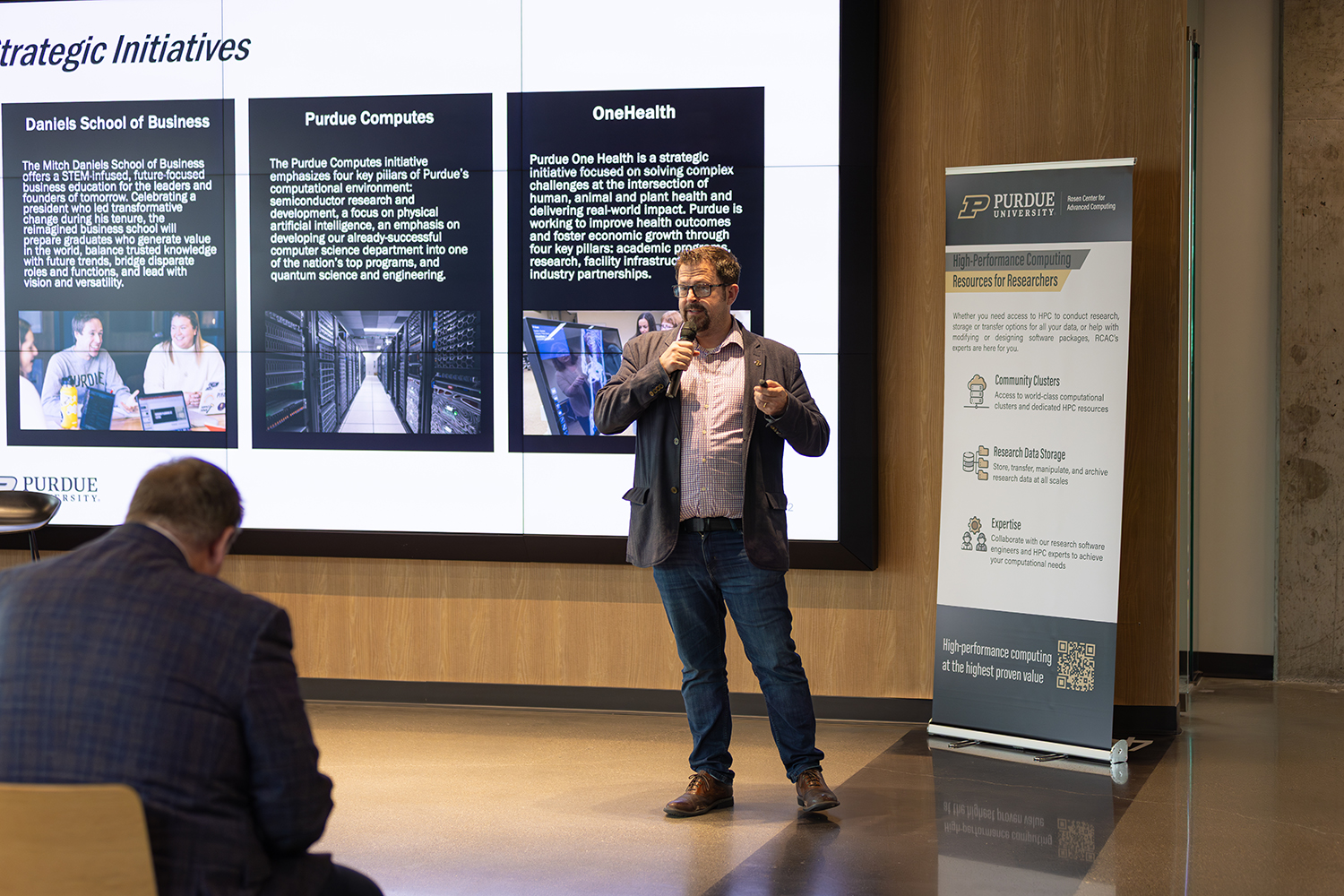
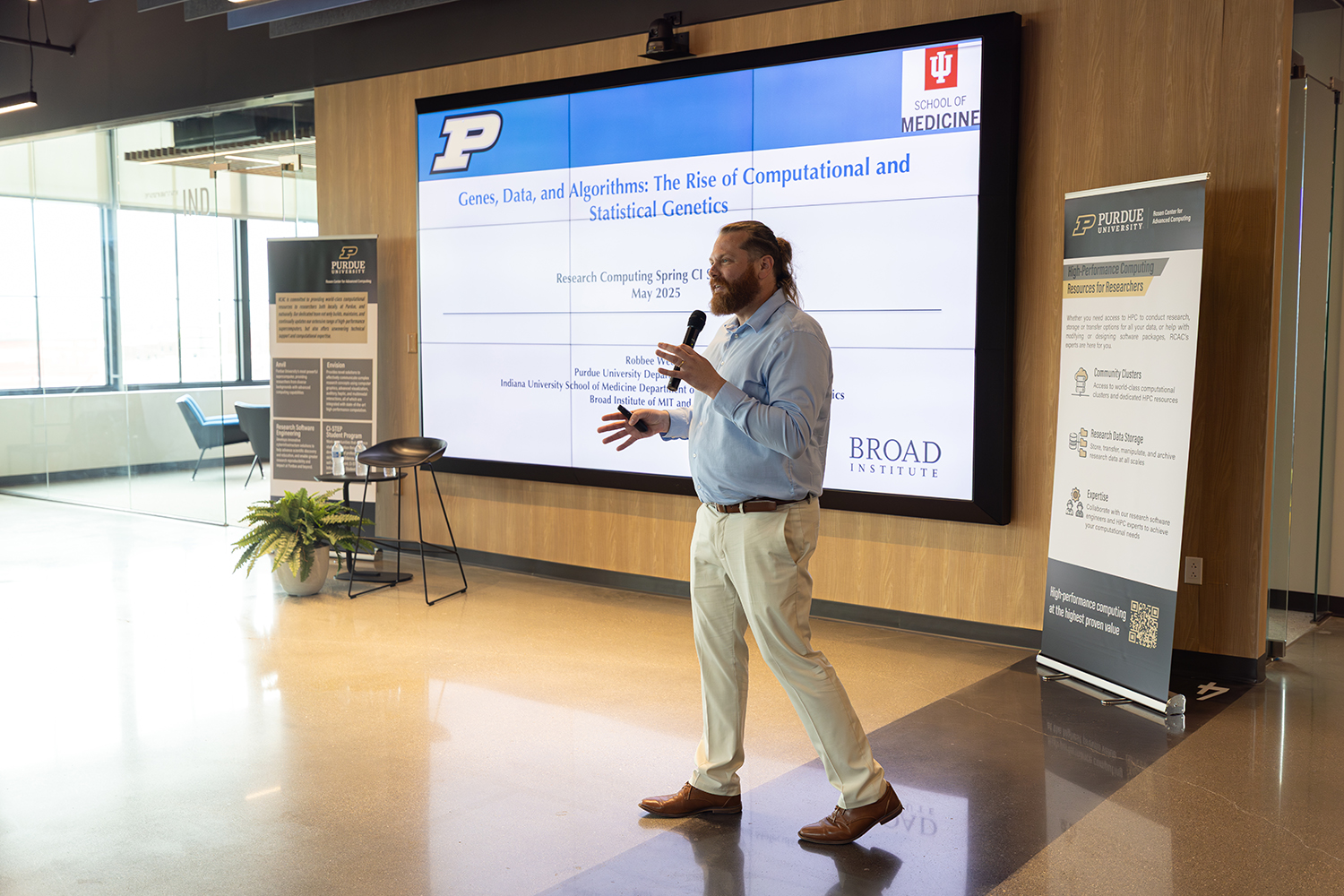
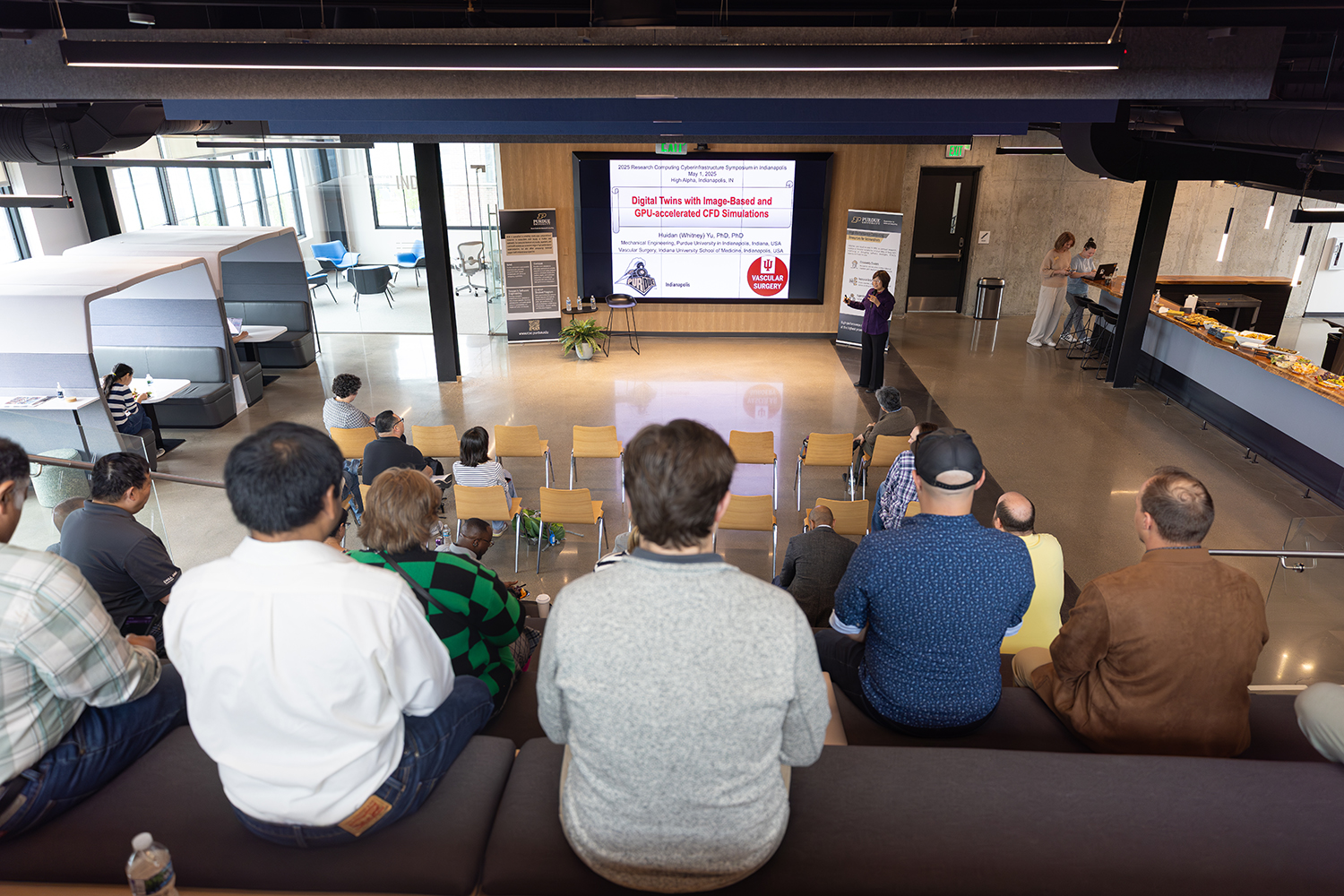
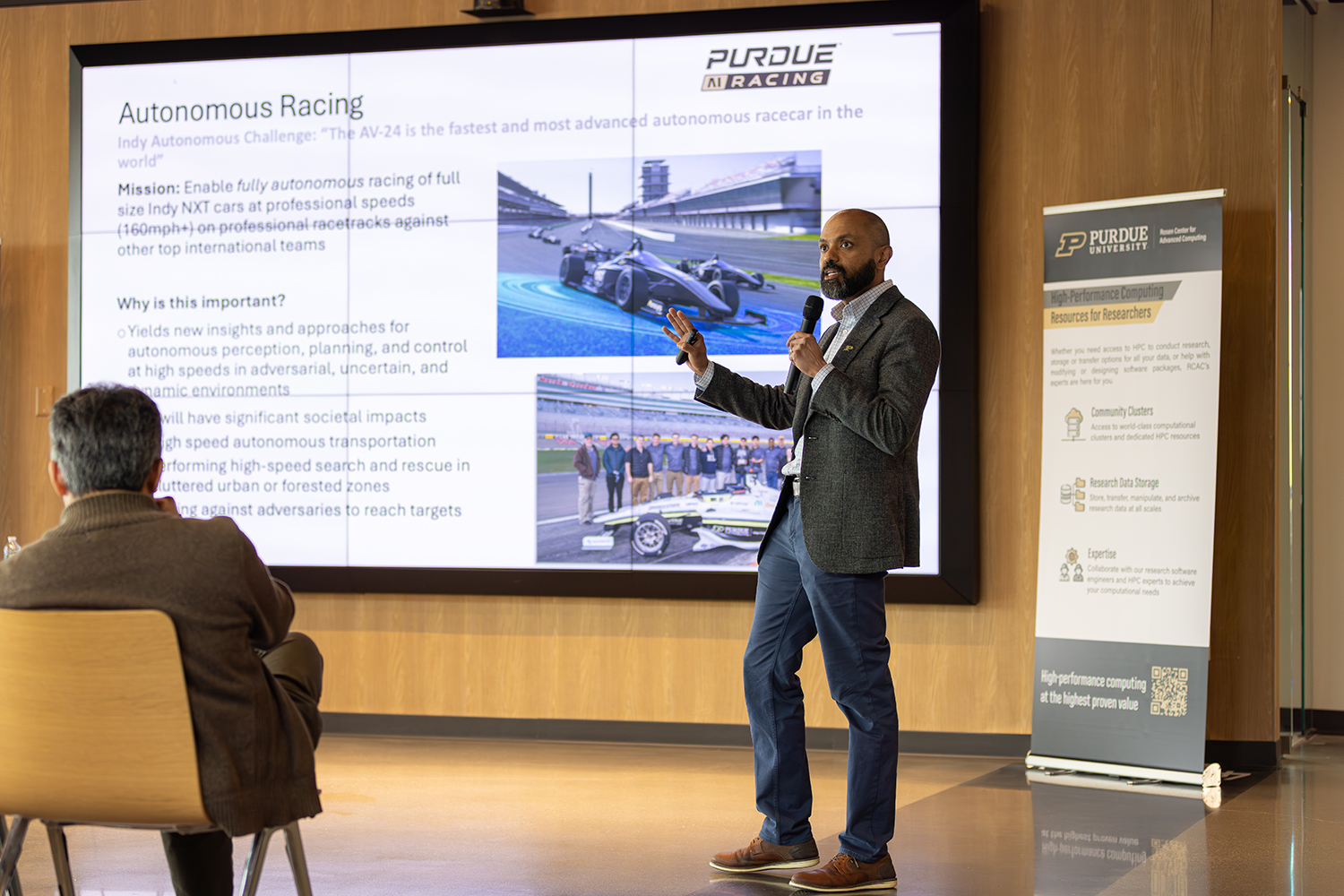
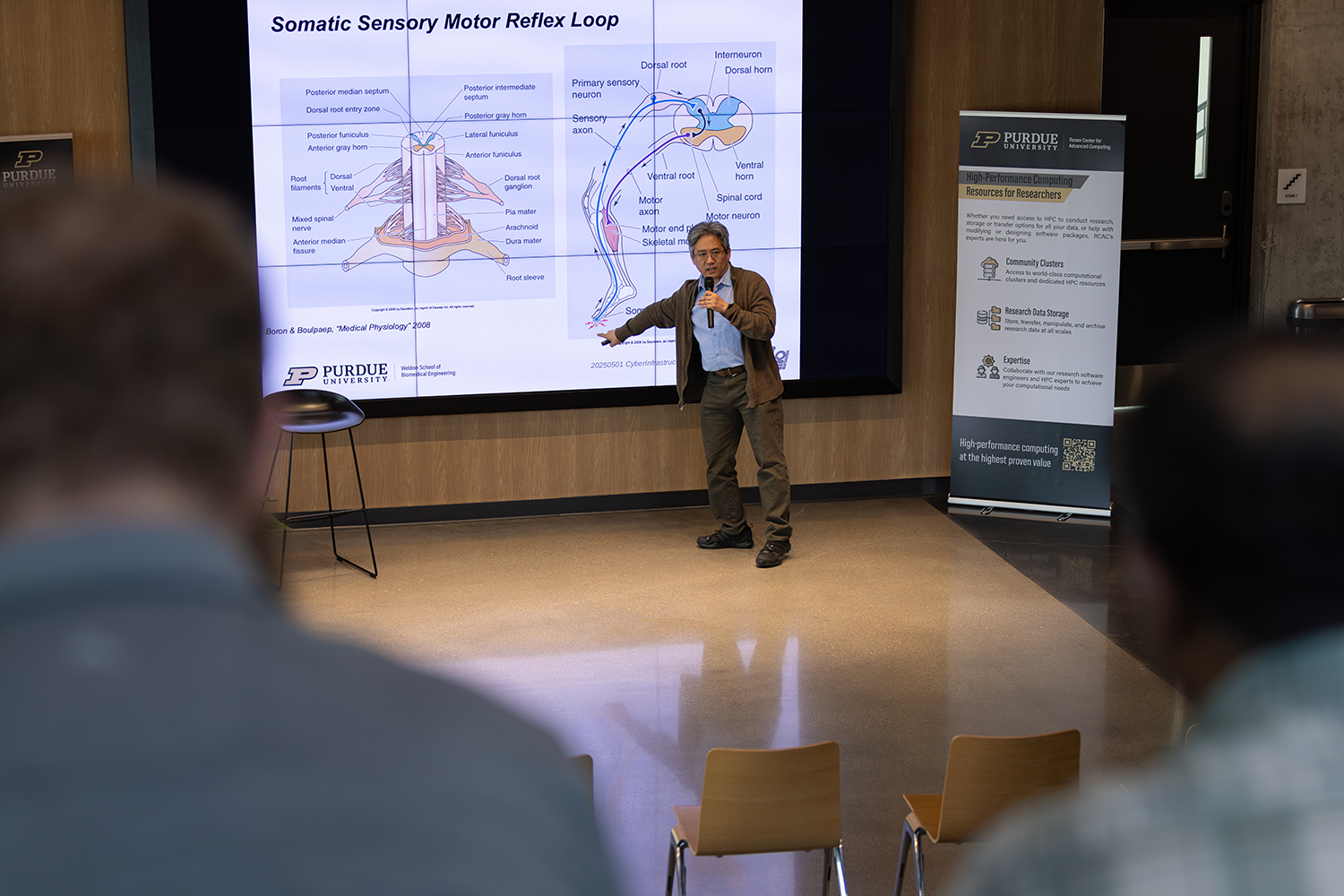
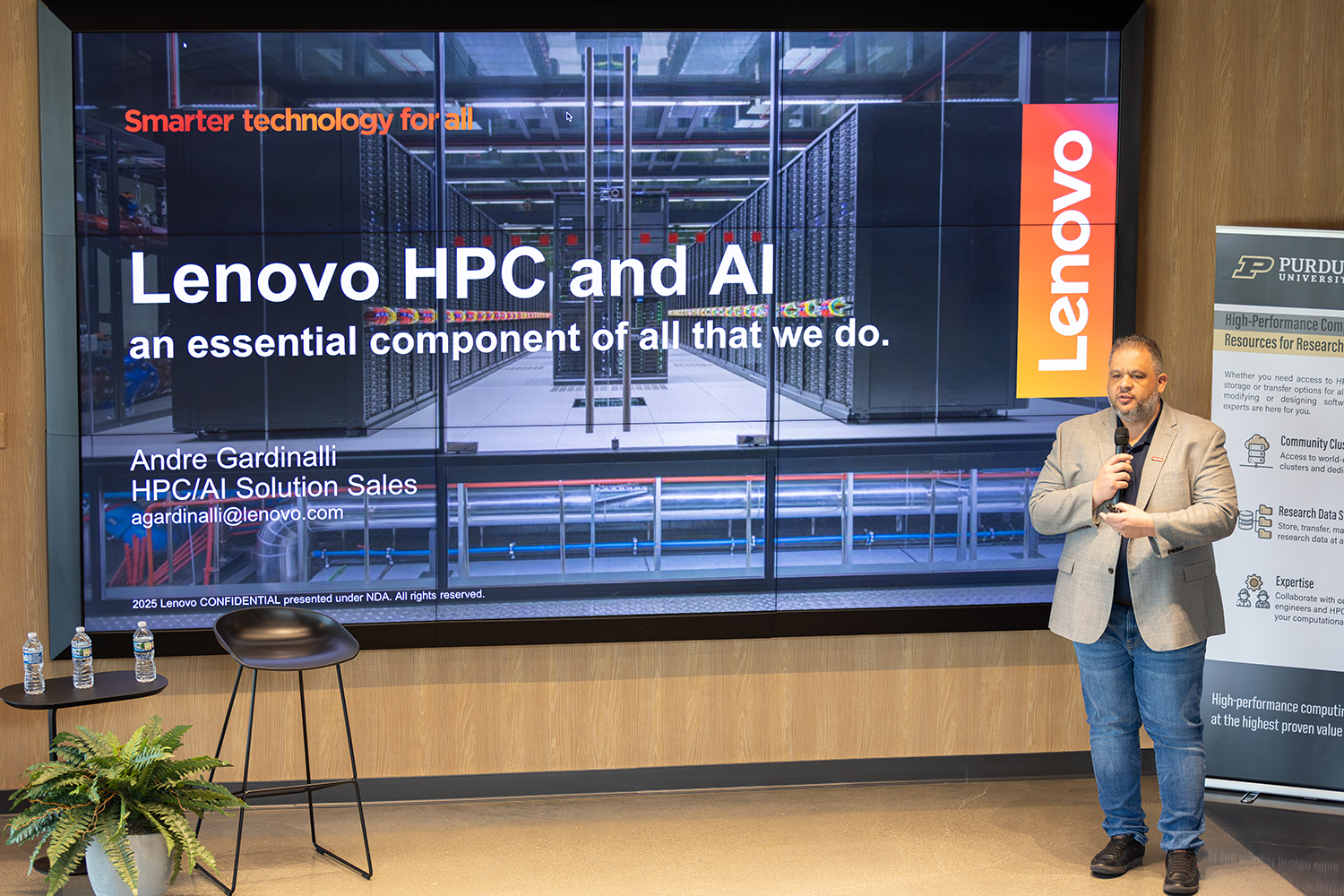
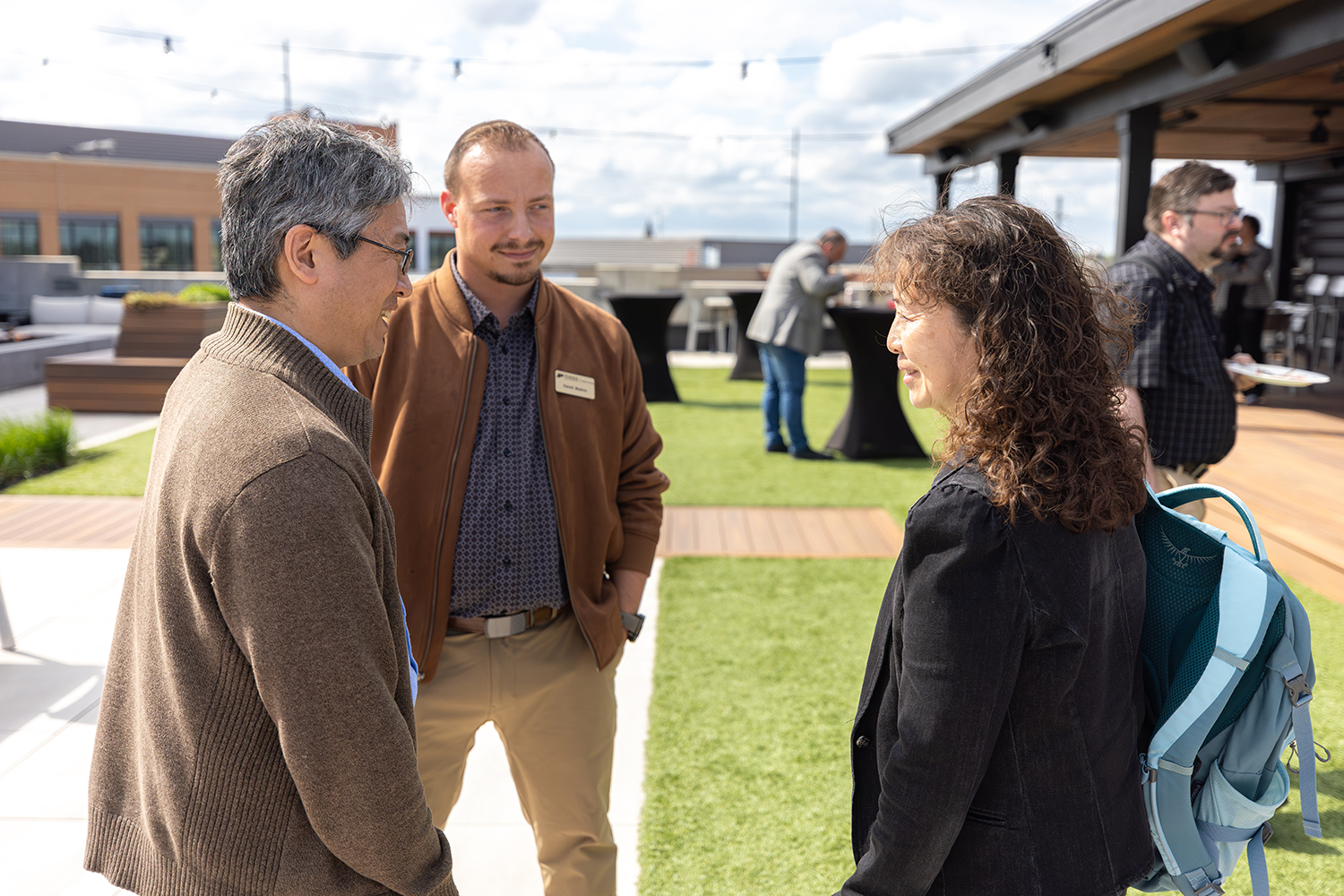
Written by: Jonathan Poole, poole43@purdue.edu
